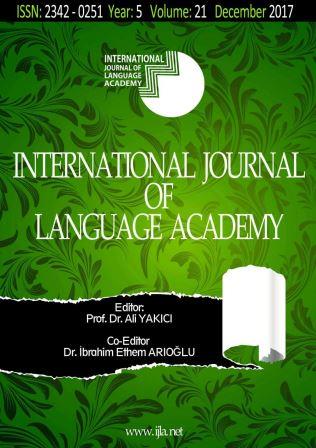Author :
Abstract
Bireysel ilişkilerden toplumsal düzene kadar kişi ve toplum davranışlarının sınırlarını belirleyen sözlü yasalara töre adı verilmektedir. Tarihî dönemlerde çeşitli Türk devletlerinin savaşmalarının en temel sebebi bir tarafın karşı tarafı töreye uymamakla suçlaması ve onu/onları Türk saymamasıdır. Yazının yayılmadığı dönemlerde sözlü olarak insanlar arasındaki ilişkileri düzenleyen çeşitli kanun ve kurallar vardı. Bu kurallar toplumu bir arada tutan en önemli kurallar bütünüydü. Törenin millet, hakan ve kurultaydan oluşan üç temel kaynağı bulunmaktaydı. Törenin bazı kuralları halk içerisinde cereyan etmiş, tecrübe edilmiş davranışlardan oluşmaktaydı. Bu tür töre unsurları özellikle atasözleri ile gelecek nesillere aktarılmıştır. Büyük toylarda, törenlerde, kurultaylarda ortaklaşa alınan kararlar da zamanla töreye dâhil olmuştur. Beylerin/hakanların bireysel katkıları da töreye yansımıştır. Töre; gelenekten göreneğe, örflerden âdetlere ve bireysel davranış kurallarından toplumsal kurallara kadar hepsiyle ilgili olduğu gibi hepsinin üstündedir, ana kavramdır. Töre, yaratılış kanunudur. Toplumsal bütünleşmenin temel kaynağı olan töre, bu bütünleşmenin kurallarını ortaya koymaktadır. Bunun toplumca benimsenmesi ve uzun bir geçmişe dayanması töreyi güçlü ve etkili kılmaktadır. Ailenin, doğanın (yeşilin), suyun, ekmeğin, şehitliğin, soyun kutsallığı töreden gelmektedir. Türk töresinde aldatmak yoktur, yalan söylemek yoktur, büyüğe karşı gelmek yoktur. Bu durumlar geçmişten günümüze atasözleri aracılığıyla nesilden nesile aktarılarak varlığını devam ettirmiştir. Sosyal olayları ve doğa olaylarının oluşumunu belirten, ahlak dersi ve öğüt veren, yol gösteren, inanışlarla töre ve gelenek bildiren atasözleri de bulunmaktadır. Anadolu’daki Yörük ve Türkmen oymaklarında töre kelimesinin “El âdeti, Türkmen töresi” olarak dile getirilmesi yazılı yasalar yanında sözlü yasaların da varlığını devam ettirdiğini göstermektedir. Törenin yansıdığı atasözleri bu çalışmayla gözler önüne serilecektir.
Keywords
Abstract
It is called the verbal statute, which defines the boundaries of individual and community behavior from individual relations to social order. One of the most fundamental reasons for the fighting of various Turkish states during the historical periods is that the other side accuses him not to obey the command and does not count him / her as Turks. There were various laws and rules that spoke orally between people during the periods when the writing did not spread. These rules were the most important rules that kept society together. There were three basic sources of the ceremony: the nation, the judge and the congress. Some of the rules of the ceremony consisted of behaviors experienced in the public. These types of customs are passed on to prospective generations, especially by proverbs. Decisions taken jointly in large toys, ceremonies, and congresses have also included the ceremony over time. The individual contributions of the men / hakans are also reflected in the tale. Custom; from the tradition to the custom, from customs to customs and from the rules of individual conduct to the social rules. The custom is the law of creation. The custom, which is the main source of social integration, sets out the rules of this integration. This is socially adopted and based on a long history makes the ceremony powerful and effective. The family comes from saying nature (green), water, planting, martyrdom, holiness of the descendants. There is no deceiving in the Turkish tradition, there is no lying, there is no opposition to the big. These situations have been preserved by transferring the generations from the generation through the daily proverbial proverbs. There are also proverbs that indicate the formation of social events and natural events, moral lessons, giving advice, guiding, beliefs and traditions. In Anatolian nomadic and Turkoman tribes, the expression of customs, Turkmen customs in the tradition keliminin indicates that the written laws as well as the oral laws continue to exist. The proverbs that reflect the ceremony will be revealed with this work.





